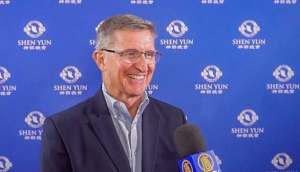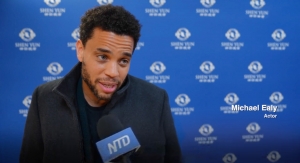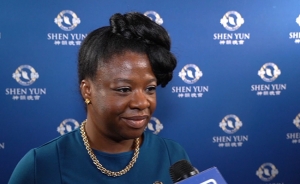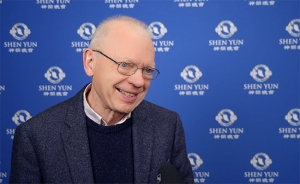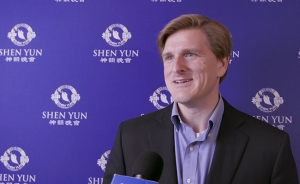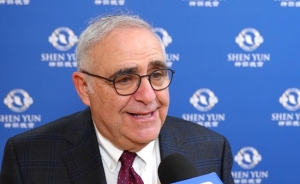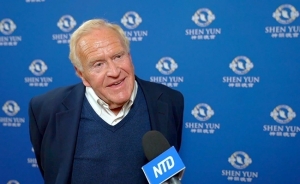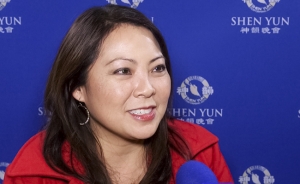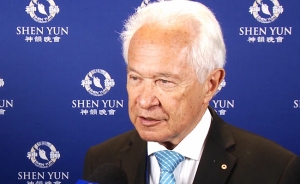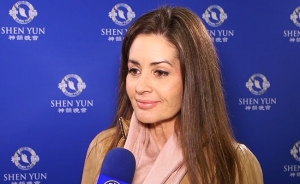
THE HILL: ‘The real reason communist China is afraid of Shen Yun’
By Yuefeng Wu
Shen Yun, despite presenting a dazzling spectacle of Chinese culture, has recently generated some controversy in Western media. Although the dance show has received standing ovations from full houses and impassioned reviews confirming its “inspiring power,” some critical voices have also faulted the religious-political messages in some of its dance pieces.
Such rhetoric is often derived from the Chinese state’s vehement and defamatory denunciation of the show. China has been using its economic and diplomatic influence to pressure theaters and ministries around the world and disrupt Shen Yun performances. In 2016, the Chinese Embassy in South Korea threatened financial retribution against a hosting theater in Seoul, and effectively forced cancellation of a performance just days before the it was scheduled.
So why has the Chinese Communist Party gone to such lengths to sabotage a performance that promotes Chinese culture? Some attribute the regime’s aggressive response to Shen Yun’s depiction of the persecution of the Falun Gong movement in China in two of its 20-some dance episodes. But there is actually a more subtle and more profound reason behind the regime’s relentless overseas efforts to suppress the show.
Falun Gong, which is rooted in Buddhist and Daoist traditions, had become widely popular in Mainland China during the 1990s. It was banned in 1999 and has been brutally persecuted ever since. The Chinese Communist Party retroactively declared the group an “evil cult” in order to justify its horrendous acts of mass imprisonment, torture and forced organ harvesting. Among Falun Gong practitioners who emigrated for their safety, a group of professional dancers and musicians in Upstate New York founded the Shen Yun performing arts troupe to freely celebrate their spiritual faith and Chinese heritage.
Their interpretation of traditional Chinese culture differs sharply from the version officially sanctioned by the Communist Party. With its rendering of narrative episodes inspired by Chinese history and literature, Shen Yun lays claim to a “true Chinese tradition” defined by Confucian morality as well as Buddhist and Daoist spiritual thoughts — ideas that developed over millennia, only to be denounced and suppressed after the 1949 Communist takeover and all but eradicated during the Cultural Revolution between 1966 and 1976.
Against this historical background, the Chinese communists’ ongoing persecution of Falun Gong may be seen as part of a larger campaign against religious faiths and traditional cultural values. In fact, the regime’s overbearing effort to censor the dance show evinces its deep-seated insecurity about its own professed legitimacy to embody Chinese civilization.
Shen Yun’s claim to represent the Chinese tradition, at least from an artistic theory point of view, is accurate. The training of its performers centers around Classical Chinese Dance, an art form institutionalized only in the 1950s, which nevertheless inherited all its footwork patterns, bodily bearings and acrobatic techniques from centuries-old vernacular traditions such as theater and martial arts.
More importantly, it absorbed a traditional set of artistic theories based on Daoist metaphysics and cosmologies, which prescribed the continuous flow of a spiritual resonance beyond the movement of physical form. Such theories gradually lost their intellectual substance in the 20th century, especially after the Communist Party systematically supplanted traditional schools of thought with atheism and Marxist materialism. These turned the artistic values into empty rhetoric at best, and at worst, what communists denounced as “the superstitious shackles of the feudal past.”
Shen Yun artists have bypassed the communist intervention and taken seriously those Chinese intellectual and cosmological foundations in their understanding of dance. The spiritual teachings of Falun Gong, to which the show’s creators adhere, include an essential unity between the material and the spiritual, with which human beings should attempt to cohere. For the dancer, it is thus important to refine one’s own moral character while improving one’s physical skills, so that virtuous thought might extend from the heart to the body in performing tales of heroism, kindness and devotion.
This spiritual interpretation of Chinese culture has had a compelling global impact. Western audiences report being elevated in the soul after the performance. Chinese viewers have also been profoundly moved by a “true tradition” absent in post-Mao China.
This inspiring vision of what China was and could be without the Communist Party must have deeply unsettled the authoritarian state. For once the artificially conjoined ideas of “China” and the party are decoupled, the regime’s insistent claim to be the sole legitimate guardian and spokesperson of Chinese civilization and culture is undermined.
In recent years, the Chinese Communist Party’s condemnatory rhetoric against Shen Yun has insinuated into Western criticisms, which portray the troupe’s effort to rejuvenate a spiritual culture in the face of authoritarian suppression as an insidious political and religious propaganda.
Art, from the vision of eternal punishment in Michelangelo’s Last Judgment to the Von Trapp family’s perilous escape from Nazi persecution in The Sound of Music, has never existed in a social vacuum, but it has also always been greater than the politics of the moment. To take politics and religion as the sole end of Shen Yun’s art rather than its context is to deny the vital human experience of hope and kindness, which many of its audiences, whatever their political and religious orientations, are already taking away from it.
Yuefeng Wu is a Ph.D. student in art history at the Johns Hopkins University.
Original article: https://thehill.com/opinion/international/4500639-the-real-reason-communist-china-is-afraid-of-shen-yun/


